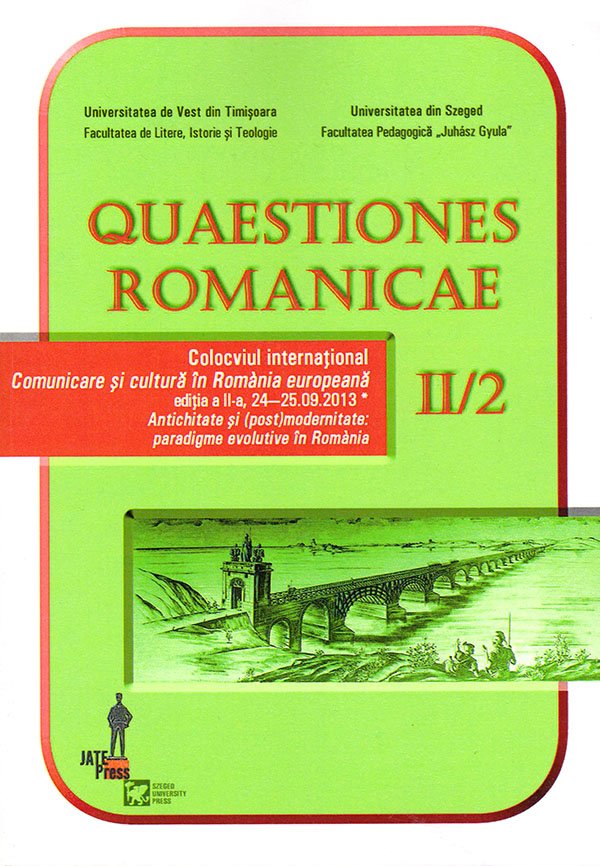Statutul familiei în legislaţia împăratului Constantin cel Mare
Abstract: (The status of the family in the legislation of Emperor Constantine the Great) Our study deals with the legislation of Emperor Constantine the Great concerning the family. More precisely, our research has three objectives: to emphasize the changes that Constantine’s legislation brought to the status of the Roman family in comparison with the previous period (1st - 3 rd centuries A.D), to determine, at the same time, the scope and nature of the changes that the status of the family underwent in comparison with the elements of continuity, and, not least, to underline the role played by the Christianization of the Empire (of the state, and society) in changing the status of the family in the first half of the 4th century. The legislation promulgated by Constantine the Great that envisages the family contains provisions referring to celibacy, marriage, cohabitation, the punishment of adultery, and the protection of children and those under full legal age. Constantine’s legislation that protects marriage and family suffers the influence of the Christian principles of ethics and morals. Emperor Constantine the Great protected celibacy by abrogating Augustus’s law concerning marriage (lex Iulia de maritandis ordinibus) which sanctioned the bachelors and the families with no children and stimulated marriage and procreation. Constantine encouraged and protected legal marriages (matrimonium iustum) by banning socially mixed marriages. At the same time, the emperor ensured the integrity of the family by banning cohabitation and severely punishing adultery. Constantine’s legislation protected children’s freedom and rights by discouraging the sale and abandon of the newly born children.
Keywords: family, celibacy, marriage, adultery, cohabitation, legislation, Church.
Rezumat: Studiul nostru abordează legislaţia împăratului Constantin cel Mare referitoare la familie. Mai concret, cercetarea noastră îşi propune trei obiective: să evidenţieze schimbările pe care legislaţia constantiniană le-a adus statutului familiei romane prin raport cu perioada precedentă (secolele I-III d. Hr.), în egală măsură, să determine amploarea şi natura schimbărilor survenite în statutul familiei prin raport cu elementele de continuitate şi, nu în ultimul rând, să sublinieze rolul pe care l-a jucat încreştinarea Imperiului (a statului şi a societăţii) în schimbarea statutului familiei în prima jumătate a secolului al IV-lea. Legislaţia promulgată de către Constantin cel Mare care vizează familia conţine dispoziţii referitoare la celibat, căsătorie, concubinaj, pedepsirea adulterului şi protejarea copiilor şi minorilor. Legislaţia constantiniană care protejează căsătoria şi familia suferă influenţa principiilor creştine de etică şi morală. Împăratul Constantin a ocrotit celibatul prin abrogarea legii lui Augustus cu privire la căsătorie (lex Iulia de maritandis ordinibus) care sancţiona celibatarii şi familiile fără copii şi stimula căsătoria şi procreaţia. Constantin a încurajat şi a protejat căsătoria legitimă (matrimonium iustum) prin interzicerea căsătoriilor mixte din punct de vedere social. Deopotrivă, împăratul a asigurat integritatea familiei prin interzicerea concubinajului şi pedepsirea aspră a adulterului. Legislaţia constantiniană a protejat libertatea şi drepturile copiilor prin descurajarea vânzării şi abandonului nou născuţilor.
Cuvinte cheie: familie, celibat, căsătorie, adulter, concubinaj, legislaţie, Biserică.
